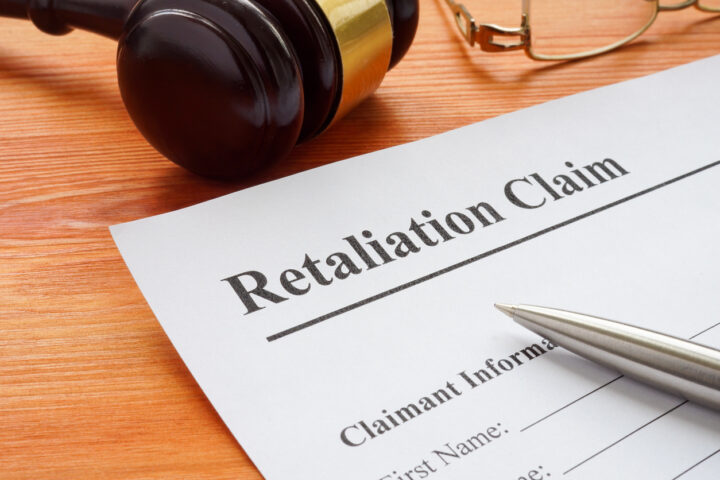When it comes to matters concerning the workplace, understanding employment law is crucial for both employers and employees. The intricate web of regulations and legalities governing the employer-employee relationship can often be complex and challenging to navigate.
In such instances, seeking the expertise of an employment lawyer becomes paramount. Employment lawyers specialize in providing legal guidance and representation in various employment-related matters.
Enlisting the services of an experienced employment lawyer, such as HKM, can make all the difference. In this article, we will explore several instances where hiring an employment lawyer is essential.
1. Wrongful Termination
Wrongful termination is a significant concern in the realm of employment law, as it involves the unjust dismissal of employees in violation of their legal rights. When faced with such a situation, seeking the expertise of an employment lawyer is crucial. An employment lawyer specializes in analyzing the circumstances surrounding the termination and evaluating whether it falls within the boundaries of legality.
If an employee is terminated without a valid reason or without following proper procedures, it may constitute wrongful termination. An employment lawyer can assess the situation, gather evidence, and determine whether the termination violated labor laws or employment contracts.
Employees who report illegal activities within their organization or engage in whistleblowing activities are protected by law. If an employer retaliates against an employee for such actions by terminating their employment, an employment lawyer can provide guidance on how to proceed and protect the employee’s rights.

2. Harassment and Discrimination
Workplace harassment and discrimination are distressing issues that can have a significant impact on employees’ well-being and professional lives. It is crucial to address such misconduct promptly and effectively. In instances of workplace harassment or discrimination, hiring an employment lawyer can provide invaluable support and guidance.
Understanding workplace harassment and discrimination is the first step towards addressing these problems. Workplace harassment refers to unwelcome behavior, comments, or actions that create a hostile or offensive work environment. Discrimination occurs when an employee is treated unfavorably based on their protected characteristics, such as race, gender, religion, age, disability, or sexual orientation.
Identifying signs of harassment or discrimination in the workplace can be challenging, as they can manifest in various forms. It may include offensive jokes, derogatory comments, exclusion, unwarranted disciplinary actions, or unfair treatment compared to colleagues.
3. Wage Disputes
Wage and hour disputes are common employment issues that arise when employees believe they have been paid improperly or denied their rightful compensation. These disputes can involve various aspects, such as overtime wages, misclassification of employees, or failure to provide mandated breaks or meal periods. In such situations, seeking the assistance of an employment lawyer is crucial.
Understanding the complexities of wage and hour laws is essential when addressing these disputes. Employment lawyers specializing in wage and hour matters possess in-depth knowledge of the relevant federal, state, and local regulations. They can provide guidance on how these laws apply to specific circumstances and help employees assert their rights.

4. Non-compete agreements
Non-compete agreements are contracts between an employer and an employee, where the employee agrees not to enter into competition with the employer during or after employment. These agreements are a common cause of legal disputes and often require the expertise of an employment lawyer.
Non-compete agreements are legally enforceable but must be reasonable in scope, geographic region, and duration. However, what is deemed “reasonable” can be subjective and vary by state, which is why having an employment lawyer review these agreements is important. If you believe that your employer is unfairly limiting your career opportunities with a non-compete agreement, you should consult with an employment lawyer.
5. Retaliation Claims
Retaliation in the workplace is not just a serious matter, but also a prevalent issue that can undermine an employee’s trust in their organization. Retaliation typically occurs when an employer penalizes an employee for exercising their rights or engaging in legally protected activities. This can span a variety of actions such as filing a complaint about harassment or discrimination, whistleblowing about illegal activities, or actively participating in an internal or external investigation involving the company.
Retaliation can be subtle or overt, ranging from changing the nature of the employee’s job in a negative manner, demoting the employee, reassigning them to less desirable roles or shifts, reducing their pay, or even dismissing them. Such retaliatory behavior not only demoralizes the employee but also fosters a hostile work environment.
In such situations, suspecting employees should promptly contact an employment lawyer. These professionals can help demystify the legal jargon, making you understand your rights in the situation and the obligations your employer has towards you. They can also aid in gathering the necessary evidence to substantiate the retaliation claim, which often can be tricky given the often-covert nature of retaliation.

6. Disputes over Benefits
Disputes over benefits often involve complex legal and administrative elements that can be difficult for an individual to navigate without professional assistance. These disagreements can involve a variety of aspects, from health insurance coverage and medical leave benefits to retirement benefits or other forms of paid leave. They may also cover issues like employer contributions to retirement plans, workers’ compensation benefits, and life insurance benefits.
If you have any suspicion or concrete evidence that your employer is not respecting your rights regarding employment benefits, consulting with an employment lawyer becomes imperative.
Through their deep understanding of the Employee Retirement Income Security Act (ERISA), the Family and Medical Leave Act (FMLA), the Affordable Care Act (ACA), and other relevant laws, an employment lawyer can evaluate whether your employer’s actions constitute a violation.
Conclusion
When faced with these challenging situations, hiring an employment lawyer not only ensures a better understanding of your rights and obligations but also facilitates a more effective resolution process.
Employment lawyers guide you through the complex legal procedures, providing representation and advocating for your rights, while you focus on your professional life. Remember, it’s essential to seek legal help at the earliest signs of trouble.




